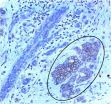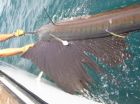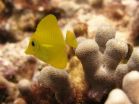Some cancer drugs may block cellular 'cross talk' but not kill cancer cells
New data from the University of Colorado Cancer Center could alter how drugs are evaluated
2010-12-23
(Press-News.org) AURORA, Colo. (Dec. 22, 2010)—A class of drugs thought to kill cancer cells may in fact block "cross talk" between the cancer cell and normal immune cells, resulting in reduced cancer growth and spread—a discovery that could significantly alter the way cancer drugs are evaluated in the future.
Researchers at the University of Colorado Cancer Center demonstrated the discovery in bladder cancer, the fifth most common cancer in the United States. Bladder cancer will kill about 14,000 Americans this year, most of whom will die as a result of the disease's spread to other organs in a process called metastasis.
The scientists showed that endothelin-A receptor antagonist drugs are only effective at blocking the start of cancer spread to other organs, not treating large, established primary-or distant-site tumors. The study was published online Dec. 22, 2010, in the Journal of Clinical Investigation.
"We discovered that these drugs block the 'tumor host interactions' found at sites of metastasis, which is what reduces tumor growth at these sites," said lead author Dan Theodorescu, MD, PhD, director of the University of Colorado Cancer Center and professor of surgery and pharmacology at the University of Colorado School of Medicine. "However, unless the drugs are used early, they have minimal or no effect."
Endothelin-A receptor antagonist drugs block the action of a protein called endothelin 1 [ET-1], thought to be involved in stimulating cancer cell growth and spread. Theodorescu's lab discovered that ET-1 attracts immune cells called macrophages to cancer cells lodged in the lungs. The macrophages start making factors that stimulate the cancer cells in the lungs to grow—called metastatic colonization—which significantly decreases the patient's chance of survival.
In the past decade, two endothelin-A receptor antagonist drugs—Abbott's atrasentan and AstraZeneca's zibotentan—have had difficulties in large phase 3 clinical trials. Both drugs were tested in a large number of patients with advanced cancer, and neither drug attained its desired effects. Most likely, Theodorescu said, the drugs were given after the window of opportunity for them to work had closed.
"Had we known this before the trials, we wouldn't have used them to try to reduce large, established tumors," he said. "We would have used them to try to suppress the appearance of metastasis. This new information has important implications for how we test drugs for effectiveness before human use and then on how we select patients in clinical trials with these agents, especially since many types of cancer secrete ET-1."
###
About the University of Colorado Cancer Center
The University of Colorado Cancer Center is the Rocky Mountain region's only National Cancer Institute-designated comprehensive cancer center. NCI has given only 40 cancer centers this designation, deeming membership as "the best of the best." Headquartered on the University of Colorado Denver Anschutz Medical Campus, UCCC is a consortium of three state universities (Colorado State University, University of Colorado at Boulder and University of Colorado Denver) and five institutions (The Children's Hospital, Denver Health, Denver VA Medical Center, National Jewish Health and University of Colorado Hospital). Together, our 400+ members are working to ease the cancer burden through cancer care, research, education and prevention and control. Learn more at www.uccc.info.
END
ELSE PRESS RELEASES FROM THIS DATE:
2010-12-23
University Park, Pa. -- A computer program that automatically analyzes mounds of satellite images and other data could help climate scientists keep track of complex, constantly changing environmental conditions, according to an international team of researchers.
"All of the data and information that is continually collected by satellites and sensors can cause tons of problems for scientists, who simply don't have the time to analyze every pixel of every satellite image," said James Wang, professor of information sciences and technology, Penn State. "Our goal has been ...
2010-12-23
WASHINGTON, D.C., December 22, 2010 -- What can scientists learn from watching a group of people sitting around, chatting, playing movies, reading, and happily making new friends? Quite a lot, says University of Melbourne, Australia acoustician Adam Vogel, who carefully observed this sort of group in a fatigue management study he and his colleagues describe this month in The Journal of the Acoustical Society of America.
Their report shows the effects of sustained wakefulness on speech and describes a novel method to acoustically analyze the effects of fatigue on the central ...
2010-12-23
Gaithersburg, MD – On December 14-15, 2010, the U.S. Food and Drug Administration (FDA) convened an Advisory Panel to discuss several scientific issues that may affect the regulation of dental amalgam. At the conclusion of the hearing, the Panel voted to recommend that the FDA conduct further review of the material's safety.
The meeting comes on the heels of a July 2009 Final Rule (http://bit.ly/FDA2009FinalRule) from the FDA that reclassified dental mercury from a class I device to a class II device and designated special controls for dental amalgam, mercury and amalgam ...
2010-12-23
PHILADELPHIA – Overexpression or hyperactivation of ErbB cell-surface receptors drives the growth of many breast cancers. Drugs, like Herceptin, that block the receptors' signals halt tumor progression in some patients. However, not all patients' tumors respond, with some becoming resistant over time. Different drugs that interfere with other steps in the signaling pathway may improve the response of patients, yet little is known about these molecules.
Now, Marcelo G. Kazanietz, PhD, professor of Pharmacology at the University of Pennsylvania School of Medicine and colleagues, ...
2010-12-23
Researchers at The Wistar Institute announce the release of an online tool that will help scientists find "gene promoters"—regions along a DNA strand that tell a cell's transcription machinery where to start reading in order to create a particular protein. The Mammalian Promoter Database (MPromDb) integrates the genome sequencing data generated at Wistar with publicly available data on human and mouse genomics. MPromDb pinpoints known promoters and predicts where new ones are likely to be found, the researchers say.
"Several complete genome sequences are available, including ...
2010-12-23
Researchers have discovered evidence of a distinct group of "archaic" humans existing outside of Africa more than 30,000 years ago at a time when Neanderthals are thought to have dominated Europe and Asia. But genetic testing shows that members of this new group were not Neanderthals, and they interbred with the ancestors of some modern humans who are alive today.
The journal Nature reported the finding this week. The National Science Foundation's Behavioral and Cognitive Sciences Division partially funded the research.
An international team of scientists led by Svante ...
2010-12-23
Billfish and tuna, important commercial and recreational fish species, may be more vulnerable to fishing pressure because of shrinking habitat, according to a new study published by scientists from NOAA, The Billfish Foundation, and University of Miami Rosenstiel School of Marine and Atmospheric Science.
An expanding zone of low oxygen, known as a hypoxic zone, in the Atlantic Ocean is encroaching upon these species' preferred oxygen-abundant habitat, forcing them into shallower waters where they are more likely to be caught.
During the study, published recently in ...
2010-12-23
MADISON – To survive in a tumultuous environment, sea urchins literally eat through stone, using their teeth to carve out nooks where the spiny creatures hide from predators and protect themselves from the crashing surf on the rocky shores and tide pools where they live.
The rock-boring behavior is astonishing, scientists agree, but what is truly remarkable is that, despite constant grinding and scraping on stone, urchin teeth never, ever get dull. The secret of their ever-sharp qualities has puzzled scientists for decades, but now a new report by scientists from the ...
2010-12-23
CORVALLIS, Ore. – Marine ecologists at Oregon State University have shown for the first time that tiny fish larvae can drift with ocean currents and "re-seed" fish stocks significant distances away – more than 100 miles in a new study from Hawaii.
The findings add credibility to what scientists have believed for some time, but until now been unable to directly document. The study also provides a significant demonstration of the ability of marine reserves to rebuild fishery stocks in areas outside the reserves.
The research was published this week in PLoS One, a scientific ...
2010-12-23
Researchers at the University of Minnesota have discovered how HIV binds to and destroys a specific human antiviral protein called APOBEC3F. The results suggest that a simple chemical change can convert APOBEC3F to a more effective antiviral agent and that shielding of a common feature shared by related proteins may yield a similar outcome.
This discovery highlights the potential for a novel approach to combating HIV/AIDS that would seek to stabilize and harness the innate antiviral activity of certain human proteins, according to lead author John Albin, a researcher ...
LAST 30 PRESS RELEASES:
[Press-News.org] Some cancer drugs may block cellular 'cross talk' but not kill cancer cells
New data from the University of Colorado Cancer Center could alter how drugs are evaluated



